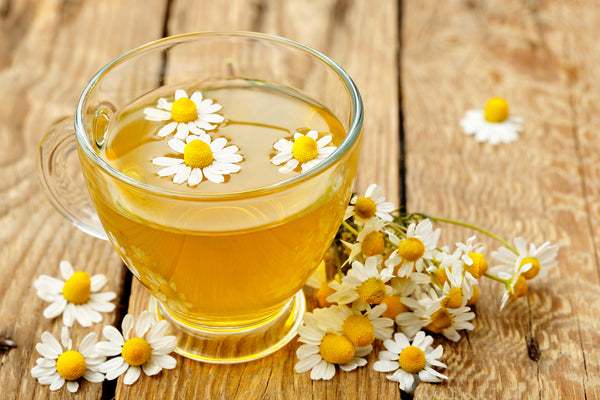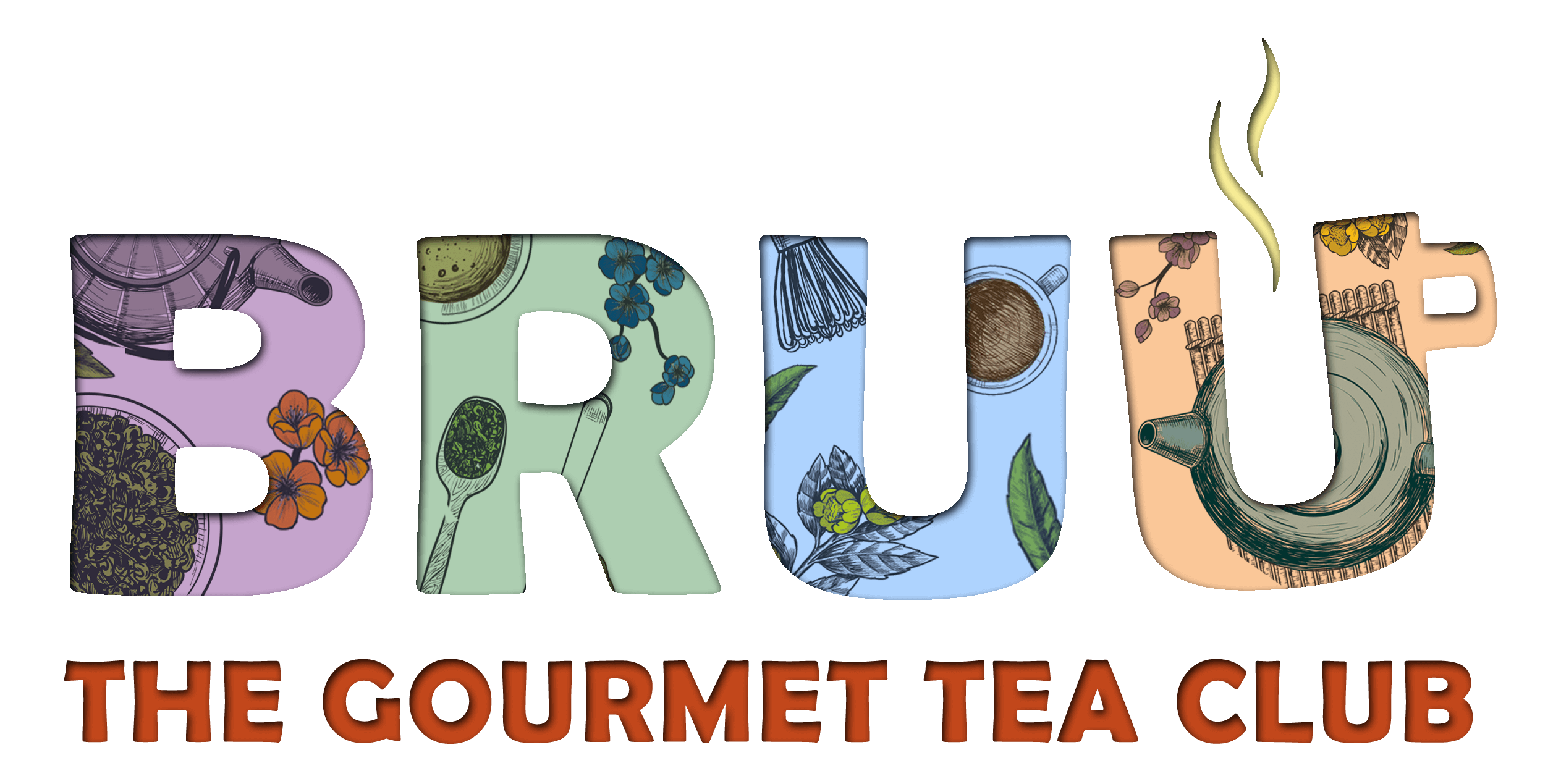Tea and cancer

Source Tea Advisory Panel
Introduction
Cancer is a major cause of morbidity in the UK with approximately 270,000 newly diagnosed cases, and around 150,000 deaths from cancer each year. It is expected that more than one in three people in England will develop cancer at some stage in their lives.[1] The disease is more likely to develop in later life, with around 75% of deaths from cancer being diagnosed in people over the age of 651. However, although there are fewer deaths from cancer in younger people, cancers cause a greater proportion of deaths: 1 in 3 (37%) deaths in adults aged under 65 years are caused by cancer.1
What is cancer?
Cancer is often thought of as a single disease, however in reality it is a term that covers a range of malignant conditions that can affect almost any organ or tissue in the body. Cancer occurs when tissue cells are no longer under the control of normal molecular regulatory processes that usually result in the division, differentiation and ultimately death of these healthy cells. When these control mechanisms become disturbed the cells divide in an uncontrolled and abnormal manner, often failing to differentiate and failing to respond to the usual death signals. In most cancers this uncontrolled growth results in the formation of a tumour.
In many cancers the malignant cells will migrate from their primary tissue of origin to secondary sites creating secondary tumour growths or ‘metastases’. The lethal effects of both primary and secondary cancers is due to the compression of healthy cells, often killing them, so preventing the normal functioning of major organs.
Causes of cancer
The vast majority of cancers are caused by a disorder of cellular genetic material. Damage to the DNA within the cells maybe as a result of environmental factors such as radiation, chemical carcinogens and some viruses.
Certain risk factors are associated with different types of cancer, and some of these are modifiable1:-
- Smoking is the greatest known risk factor for cancer
- UV (Ultraviolet) Radiation, specifically UVA and UVB, cause skin damage, including sunburn and premature ageing of the skin. This damage can eventually lead to skin cancer
- Experts think that about a quarter of all cancer cases are caused by unhealthy diets and obesity. Diet influences a number of cancers including cancers of the bowel, stomach, mouth, oesphagus and breast
- Excessive alcohol consumption strongly increases an individual's risk of developing oral cancer, laryngeal cancer, liver cancer and oesophageal cancer
- Around four percent of all cancer deaths maybe caused by exposure to certain chemicals
Diet and cancer
More and more research is finding that diet plays a crucial role in the prevention of cancer. A joint WHO/ FAO Expert Consultation report[2] has estimated that dietary factors account for approximately 30% of cancers in industrialised countries. There is convincing evidence that being overweight and obese increase the risk of cancer, as well as consuming large amounts of alcohol, aflatoxins, and some forms of salted and fermented fish. Factors which probably increase risk include high dietary intake of preserved meats, salt-preserved foods and salt, and very hot (thermally) drinks and food. Probable protective factors are consumption of fruits and vegetables. After tobacco, overweight and obesity appear to be the most important known avoidable causes of cancer.
Findings from the world's largest investigation into diet and cancer, EPIC (European Prospective Investigation into Cancer and Nutrition), monitoring approximately 500,000 individuals in 10 European countries, have found that
- High intakes of fibre reduce bowel cancer
- High intakes of red or processed meats increase bowel cancer
- Eating lots of fish may reduce bowel cancer
- Being overweight and obese increase the risk of breast cancer in post-menopausal women
- Overweight and obesity also increases the risk of cancer of the kidney
- High intakes of saturated fat increases the risk of breast cancer
- High levels of fruit and vegetables reduce the risk of dying early from any cause by 20%
- High intakes of milk and cheese, and high levels of calcium in our diet, are linked to a reduced risk of bowel cancer.
Dietary Recommendations
The World Cancer Research Fund[3] has made the following dietary recommendations:-
- Increase fruit and vegetable intake - at least 5 portions per day.
- Consume a high proportion of high fibre foods such as wholemeal bread and other cereals
- Choose a variety of plant based foods such as cereals, legumes (such as lentils, beans and peas), starchy foods (such as pasta, rice and bread) as well fruit and vegetables
- Select foods low in fat and salt
- Drink alcohol in moderation if at all
These dietary changes as well as maintaining a healthy weight and being physically active can help reduce the risk of developing cancer.
The Committee on Medical Aspects of Food and Nutrition policy (COMA)[4] assembled a working party of experts to look at the evidence for the role of nutrition in cancer causation and to develop recommendations for the prevention of a number of common cancers. In addition to the above dietary recommendations they also suggested that red meat and processed meat consumption should not increase, instead choosing white meat and fish as alternatives
The benefits of tea
There is increasing evidence that specific substances found in certain foods can enhance general healthy eating recommendations e.g. phenolic compounds found in plants. Tea is rich in specific phenolic compounds including flavonoids.
Animal and in-vitro studies have provided evidence that the polyphenols found in
tea may have cancer preventative effects[5],[6],[7] Tea has been shown to inhibit tumorigenesis in many animal models, including those for cancer of the skin, lung, oral cavity, oesophagus, stomach, small intestine, colon, liver, pancreas, bladder, and prostate.[8],[9],[10] Suggested mechanisms of action have been reviewed in a number of papers[11],[12],[13] and include:
- Antioxidant activity and scavenging free radicals7,9,[14],[15],[16],[17]
- Modulating enzymes implicated in the carcinogenic process10,[18]
- Modifying the pathways of signal transduction, thereby positively altering the expression of genes involved in cell proliferation, angiogenesis, and apoptosis, all important stages of cancer progression[19],[20]
- Antimicrobial actions[21],[22] (association between Helicobacter pylori and gastric cancer)
While the exact mechanisms of action are still unknown, these studies provide possible explanations. However, additional in-vivo studies are required, using tea in amounts that are typically consumed, to further evaluate any potential mechanisms in humans.
The evidence for tea and cancer
A number of epidemiological studies suggest that tea drinking is associated with a decreased risk of cancer. For example, in a Japanese population survey, an overall protection together with a slowdown in increase of cancer incidence was reported with tea drinking.[23] The effects were more pronounced when the consumption rose to over 10 cups of tea a day. However, other epidemiological studies investigating the association between tea consumption and a reduced risk of cancer have been inconclusive:
Stomach Cancer
Some studies have shown an inverse association between green tea drinking and stomach cancer[24],[25],[26],[27],[28],[29],[30],[31],[32],[33] one of which reported that green tea drinkers had a 48% reduced risk of developing stomach cancer and a 51% lower risk of developing chronic gastritis versus non drinkers.24 However a recent review, conducted in 2005 by Hoshiyama,[34] examined the association between green tea consumption and stomach cancer in both case control and prospective studies. This review concluded that results from the prospective studies (considered to be more reliable than case controls) showed no benefit from drinking green tea on stomach cancer risk. Another review on this subject also concluded that from the current epidemiological evidence, green tea did not have a protective role in the prevention of stomach cancer; however it did suggest that there appears to be a protective effect of green tea on adenomatous polyps and chronic atrophic gastritis formations.[35]
Breast cancer
A number of population studies have now investigated a potential link between tea drinking and protection against breast cancer.[36],[37],[38],[39] A study in a Los Angeles County of tea drinkers showed a significantly reduced risk of breast cancer compared to non-tea drinkers.36 It was observed that the risk of breast cancer was lowest among those who drank green tea only, intermediate among those who drank both green and black tea, and unchanged among those who drank black tea only.
Results from another study in Japan found that the regular consumption of green tea (more than 3 cups a day) might be protective against recurrence of breast cancer in the early stages.39 This has been confirmed in a recent meta-analysis that reviewed all observational studies assessing breast cancer incidence and recurrence.[40] Results from this review indicated that green tea may possibly help prevent breast cancer recurrence in early stage (I and II) cancers, however, because of the small studies that have been conducted to date and the lack of any clinical trial evidence, it is difficult to draw any firm conclusions.
However a recent meta-analysis of all epidemiological studies that have examined the effect of both green tea and black tea on breast cancer risk, indicated that there may be a lower risk for green tea consumption, but the results for black tea were conflicting.[41] This is in contrast to a pooled analysis of two prospective studies in Japan that included over 35,000 Japanese women, which found green tea intake was not associated with a lower risk of breast cancer.[42]
Lung Cancer
Flavonoids have also been associated with a reduced risk of lung cancer[43]and one case control study reported a 50% reduction in lung cancer risk when consuming 1 cup of black tea a day.[44] A population-based case-control study of women from the Shanghai Residential Registry found that among non-smoking women, consumption of green tea was associated with a reduced risk of lung cancer, and the risks decreased with increasing consumption of green tea.[45] However, another study that investigated the relationship between catechin intake (a type of flavonoid that is abundant in tea) and lung cancer, found no such association[46]. Other studies investigating the relationship between tea drinking/ flavonoids and lung cancer also reported no association.[47],[48],[49],[50]
Ovarian cancer
A case control study in China during 1990-2000 found that increasing the frequency of tea drinking, especially green tea, can help reduce the risk of ovarian cancer.[51]
A more recent study, conducted by researchers at the National Institute of Environmental Medicine, Karolinska Institutet, Stockholm, Sweden, examined the association between tea consumption and risk of ovarian cancer in 61,057 women, aged 40 to 76 years, who were participants in the population-based Swedish Mammography Cohort. During 15 years of follow up a 46% lower risk of ovarian cancer was found in women who drank two or more cups of tea per day compared with non tea drinkers Each additional cup of tea was associated with an 18% decreased risk of ovarian cancer.[52]
Prostate Cancer
It has been reported that drinking 6 cups of green tea per day significantly inhibits prostrate cancer development and metastasis.[53] A case-control study, conducted in Southeast China during 2001-2002, found that prostate cancer risk decreased with increasing frequency, duration and quantity of green tea consumed.[54]
Inconsistencies from these population studies maybe as a result of their design e.g. lack of detail about exposure to tea – quantity, strength and variety, insufficient information about the flavonoid contents of foods, variation of flavonoid content amongst food varieties, discrepancies in the collation of dietary information using dietary analysis questionnaires and confounding lifestyle and environmental factors. These details may influence the end results and make them difficult to interpret. Consideration of these factors is required for any future research.
In summary…
Tea and flavonoids have been identified as potential cancer preventatitive components in animal and in vitro studies. However, the inconclusive results reported in population studies maybe as a result of a number of confounding factors making the results difficult to interpret. Although the scientific evidence for tea is growing, it is not yet conclusive and represents a promising area for future research. In the mean time, it is reasonable to conclude that drinking both green and black tea is compatible with healthy eating dietary advice to help reduce the risk of developing cancer, helping to maintain overall health and well-being.
References:
[1] Cancer Research UK
[2] Diet, Nutrition and the Prevention of Chronic Diseases (2002), Report Of A Joint WHO/FAO Expert Consultation, Who Technical Report Series 916
[3] Diet and Health Guidelines for Cancer Prevention. World Cancer Research Fund 1998
[4] DoH. (1998) Nutritional Aspects of the Development of Cancer. Report of the Working Group on Diet and Cancer. Committee on Medical Aspects of Food Nutrition Policy. HMSO
[5] World Cancer Research Fund. (1997) Other bioactive components. Food, nutrition and the prevention of Cancer: a global perspective. Washington DC: World Cancer Research Fund: 421-7
[6] Middleton E, et al (1994) The impact of plant flavonoids on mammalian biology: implications for immunity, inflammation and cancer. In: Harborne JB, editor. The flavonoids: advances in research since 1986. London: Chapman and Hall, 619-52
[7] McKay DL, and Blumberg JB (2002) The Role of Tea in Human Health: An Update JACN 21:1-13
[8] C.S. Yang and Z.Y. Wang (1993), Tea and cancer, J. Natl. Cancer; 85.
[9] JD. Lambert and C.S. Yang, (2003), Mechanisms of cancer prevention by tea constituents, J. Nutr. 133; 3262S–3267S.
[10] Chen D, et al (2004) Green tea and tea polyphenols in cancer prevention. Front Biosc 9; 2618-31
[11] C.S. Yang, P. Maliakal and X. Meng, (2002) Inhibition of carcinogenesis by tea, Annu. Rev. Pharmacol. Toxicol. 42; 25–54.
[12] Doss MD, et al (2005) Trapping of growth factors by catechins: a possible therapeutical target for prevention of proliferative diseases. J Nutr Biochem 16: 259-299
[13] Isemura M. et al (2000) Tea catechins and related polyphenols as anti-cancer agents, Biofactors 13; 81–85.
[14] J.V. Higdon and B. Frei (2003) Tea catechins and polyphenols: health effects, metabolism, and antioxidant functions, Crit. Rev. Food Sci. Nutr. 43; 89–143.
[15] C.S. Yang, et al (2001) Tea and tea polyphenols in cancer prevention Adv. Exp. Med. Biol. 492; 39–53
[16] C.S. Yang, et al (2000) Tea and tea polyphenols in cancer prevention, J. Nutr. 130;472S–478S
[17] Siddiqui IA, et al (2004) Antioxidants of the Beverage Tea in Promotion of Human Health. Antioxidants & Redox Signaling 6; 571-582
[18] I. Naasani, F., et al (2003) Blocking telomerase by dietary polyphenols is a major mechanism for limiting the growth of human cancer cells in vitro and in vivo, Cancer Res. 63; 824–830.
[19] S Masahito and IB Weinstein (2005) Modulation of signal transduction by tea catechins and related phytochemicals Mut Res/ Fund Mol Mech Mutag 591; 147-160
[20] Z Hou, et al (2004) Effects of tea polyphenols on signal transduction pathways related to cancer chemoprevention Mut Res/ Fund Mol Mech Mutag 555; 3-19
[21] Weisburger JH (1999) Tea and health: the underlying mechanisms. Proc Soc Exper Biol Med 220; 271-5
[22] Diker KS, et al (1994) The bactericidal activity of tea against Helicobacter pylori. Lett Appl Microbiol 19; 299-300
[23] Imai K, et al (1997) Cancer preventative effects of drinking green tea among a Japanese population. Prev Med 26; 769-75
[24] Setiawan V, et al (2001) Protective Effect of green tea on the risks of chronic gastritis and stomach cancer. Int J Cancer 92; 600-604
[25] Yu GP, et al (1991) Risk factors for stomach cancer: a population based case-control study in Shanghai. Cancer Causes Control 2; 169-74
[26] Yu GP, et al (1995) Green tea consumption and risk of stomach cancer: a population based case-control study in Shanghai. Cancer Causes Control 6; 532-8
[27] Ji BT, et al (1996) The influence of cigarette smoking, alcohol and green tea consumption on the risk of carcinoma of the cardia and distal stomach in Shanghai, China. Cancer 77: 2449-57
[28] Inoue M, et al (1998) Tea and coffee consumption and the risk of digestive tract cancers: data from a comparative case-reference study in Japan. Cancer Causes Control 9; 209-16
[29] Kono S, et al (1988) A case-control study of gastric cancer and diet in Northern Kyushu, Japan. Jpn J Cancer Res 79; 1067-74
[30] Sun, C.L., et al (2002) Urinary tea polyphenols in relation to gastric and esophageal cancers: a prospective study of men in Shanghai, China. Carcinogenesis 23; 1497-1503
[31] Nagano, J., et al (2001) A prospective study of green tea consumption and cancer incidence, Hiroshima and Nagasaki (Japan). Cancer Causes Control 12; 501-508
[32] Tsubono, Y., et al (2001) Green tea and the risk of gastric cancer in Japan. N Engl J Med 344; 632-636
[33] Galanis, D.J., et al (1998) Intakes of selected foods and beverages and the incidence of gastric cancer among the Japanese residents of Hawaii: a prospective study. Int J Epidemiol 27; 173-180
[34] Hoshiyama Y, et al (2005) Green tea and stomach cancer – a short review of prospective studies. J Epidemiol 15; S109-12
[35] Borrelli F, et al (2004) Green tea and gastrointestinal cancer risk. Aliment Pharmacol Ther 19; 497-510
[36] Wu, A.H., et al (2003) Green tea and risk of breast cancer in Asian Americans. Int J Cancer 106; 574-579
[37] Nakachi, K., et al (1998) Influence of drinking green tea on breast cancer malignancy among Japanese patients. Jpn J Cancer Res 89; 254-261
[38] Suganuma, M., et al (1999) Green tea and cancer chemoprevention. Mutat Res 428; 339-344
[39] Inoue M, et al (2001) Regular consumption of green tea and the risk of breast cancer recurrence: follow up study from the Hospital-based Epidemiologic Research Program at Aichi Cancer Center (HERPACC), Japan. Cancer Letters; 167 (2): 175-82
[40] Seely D, et al (2005) The effects of green tea consumption on incidence of breast cancer and recurrence of breast cancer: A systematic review and meta-analysis. Integr Cancer Ther 4; 144-55
[41] Sun CL, et al (2005) Green tea, black tea and breast cancer risk: a meta-analysis of epidemiological studies. Carcinogenesis, Advance Access published on November 25, 2005; doi: doi:10.1093/carcin/bgi276
[42] Suzuki Y, et al (2004) Green tea and the risk of breast cancer: pooled analysis of two prospective studies in Japan. Br J Cancer 90(7); 1361-3
[43] Knekt P, et al (1997) Dietary flavonoids and the risk of lung cancer and other malignant neoplasms. Am J Epidem 146; 223-30
[44] Mendilaharsu M, et al (1998) Consumption of tea and coffee and the risk of lung cancer in cigarette smoking men: a case-control study in Uruguay. Lung Cancer 19; 101-7
[45] Zhong, L., et al (2001) A population-based case-control study of lung cancer and green tea consumption among women living in Shanghai, China. Epidemiology 12; 695-700
[46] Arts I, et al (2001) Dietary catechins and epithelial cancer incidence: the Zutphen elderly study. Int J Cancer 92; 298-302
[47] Goldbohm RA, et al (1990) Intake of flavonoids and cancer risk: a prospective cohort study. In: Cost 916. Polyphenols in food. Luxemburg: Office for official publications of the European Communities. 159-66
[48] Hertog MGL, et al (1995) Flavonoid intake and long term risk of coronary heart disease and cancer in the seven countries study. Arch Intern Med 155; 381-6
[49] Le Marchand L, et al (2000) Intake of flavonoids and lung cancer. J Natl Cancer Inst 92; 154-60
[50] Blot WJ, et al (1996) Tea and cancer: a review of the epidemiological evidence. Eur J Cancer Prev 5; 425-38
[51] Zhang, M., et al (2002) Tea consumption and ovarian cancer risk: a case-control study in China. Cancer Epidemiol Biomarkers Prev11; 713-718
[52] Larsson SC; Wolk A, (2005) Tea Consumption and Ovarian Cancer Risk in a Population-Based Cohort. Arch Inter Med 165:2683-2686
[53] Adhami, V.M., et al (2003) Molecular targets for green tea in prostate cancer prevention. J Nutr 133, Suppl, 24; 17S-2424S
[54] Jian, L., et al (2004) Protective effect of green tea against prostate cancer: a case-control study in southeast China. Int J Cancer 108; 130-135




